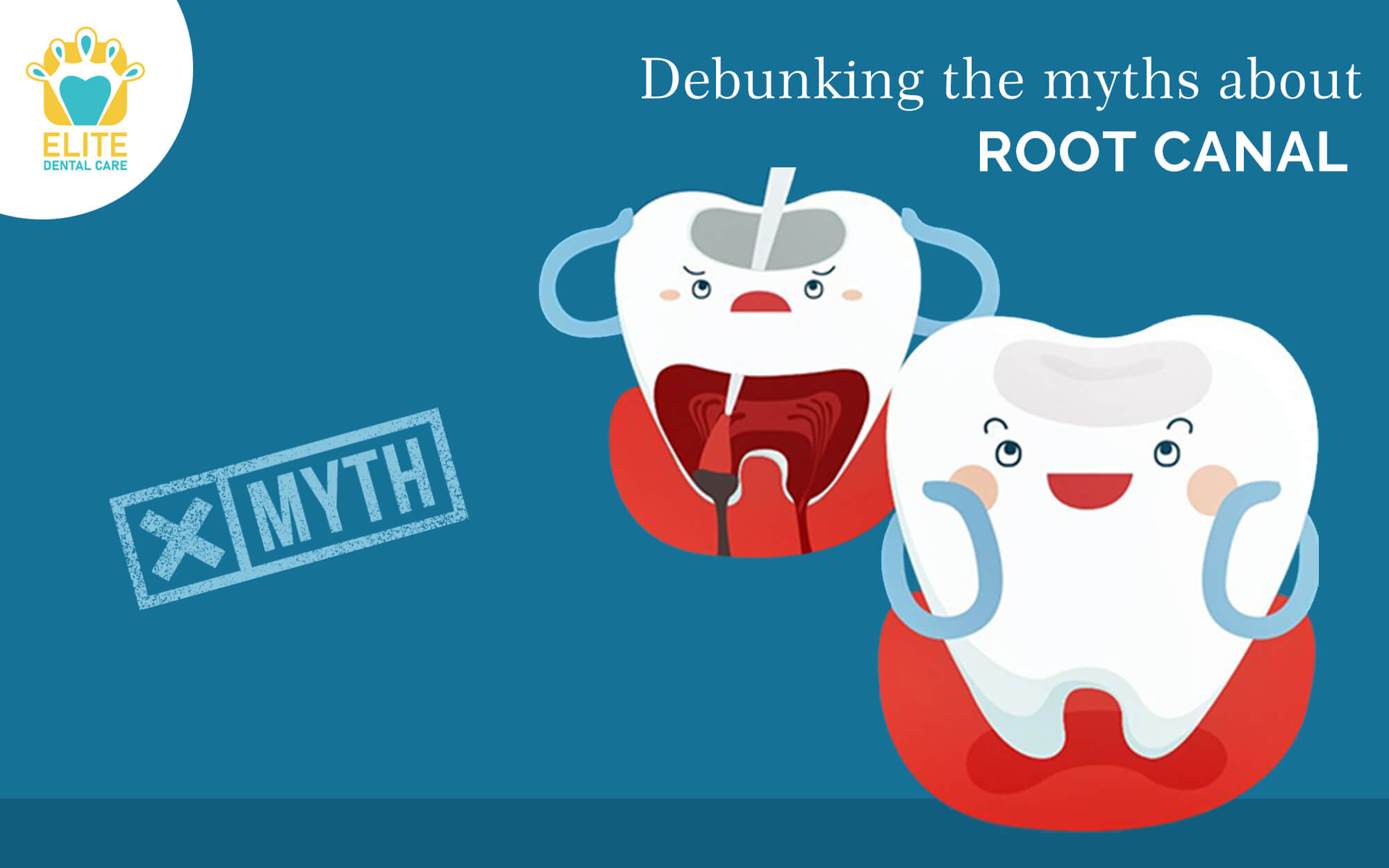Common Misconceptions About Root Canal Treatment
You may think that root canal treatment is a nightmare, filled with excruciating pain and endless visits to the dentist. But let me assure you, there are several common misconceptions surrounding this procedure that need to be debunked.
From the belief that root canals cause illness or weaken your tooth structure, to the misconception that they are only necessary for severely damaged teeth, there’s a lot to uncover.
So, sit back, and prepare to have your assumptions challenged as we unveil the truth about root canal treatment.
Root Canals Are Excruciatingly Painful
Root canals are often falsely believed to be excruciatingly painful, but this misconception is far from the truth. In fact, undergoing a root canal treatment is usually no more painful than getting a filling. The advancements in dental technology and anesthesia have made the procedure virtually painless.
During a root canal, your dentist will numb the area around the tooth with a local anesthetic. This ensures that you won’t feel any pain during the procedure. Additionally, modern techniques and instruments make the process quicker and more efficient, reducing discomfort and post-operative pain.
Contrary to popular belief, the purpose of a root canal is to relieve pain, not cause it. Root canal treatment is necessary when the pulp, the innermost part of the tooth, becomes infected or inflamed. By removing the infected pulp and cleaning the root canals, your dentist can save your tooth and alleviate any pain you may be experiencing.
It’s important to remember that every person’s pain tolerance is different, and some individuals may experience mild discomfort after the procedure. However, this can easily be managed with over-the-counter pain relievers.
Root Canals Cause Illness or Systemic Infections
Many people believe that root canals can lead to illness or systemic infections, but there’s no scientific evidence to support this claim. This is a common myth that has been debunked by experts in the field.
It’s important to rely on factual information and consult with your dentist to make informed decisions about your oral health.
No Scientific Evidence
There is no scientific evidence to support the claim that root canals cause illness or systemic infections. Numerous studies conducted by reputable institutions have consistently shown that root canal treatment is safe and effective in treating dental infections.
Here are two reasons why this misconception lacks scientific backing:
– Root canals are designed to remove infected pulp and seal the tooth, preventing further infection. This process helps eliminate bacteria and reduce the risk of systemic infections.
– The success rates of root canal treatment are high, with a majority of patients experiencing long-term relief from pain and infection. This indicates that the procedure doesn’t contribute to the development of illness or systemic infections.
It is important to rely on scientific evidence and consult with dental professionals to make informed decisions about your oral health.
Myth Debunked
Contrary to popular belief, scientific evidence overwhelmingly debunks the myth that root canals cause illness or systemic infections.
There’s a misconception that the bacteria present in the root canal system can enter the bloodstream and lead to various health problems. However, numerous studies have shown that this isn’t the case. The bacteria found in the root canal system are localized and can’t easily travel to other parts of the body.
Additionally, modern techniques and advancements in dental technology have significantly reduced the risk of infection during root canal treatment. Dentists take proper precautions to ensure a sterile environment and minimize any potential complications.
Therefore, you can rest assured that root canals don’t cause illness or systemic infections. It’s important to rely on scientific evidence rather than unfounded myths when making decisions about your dental health.
Root Canals Are Not Effective in the Long Term
Don’t believe the misconception that root canals aren’t effective in the long term.
Contrary to popular belief, root canal treatment can provide long-lasting results.

Numerous studies and real-life experiences have shown the enduring effectiveness of root canals, allowing patients to retain their natural teeth and enjoy a pain-free, functional smile for many years to come.
Long-Lasting Root Canal Results
Root canals may not provide long-lasting results, contrary to popular belief. While many people assume that once a root canal is performed, the problem is solved for good, this isn’t always the case. It’s important to understand that root canals can fail over time, leading to the need for additional treatment or even extraction of the tooth.
Here are two reasons why root canals may not provide long-lasting results:
– Incomplete removal of infected tissue: If the dentist fails to thoroughly clean and disinfect the root canal system, bacteria can remain and cause reinfection.
– Fractured tooth: A tooth that has undergone a root canal treatment can become weakened over time. If the tooth fractures, it may no longer be salvageable and extraction may be necessary.
It is crucial to have regular check-ups with your dentist to ensure the long-term success of your root canal treatment.
Enduring Effectiveness of Root Canals
Over time, the effectiveness of root canals may diminish, requiring further treatment or extraction of the tooth. Despite their initial success in relieving pain and saving the tooth, some root canals may develop complications or fail to fully eliminate the infection.
Factors such as the complexity of the root canal system, the presence of additional canals, or the inability to completely clean and seal the canals can contribute to this diminished effectiveness. In some cases, reinfection or persistent infection can occur, leading to the need for retreatment or even extraction of the tooth.
It’s important to note that while root canals have a high success rate, there’s always a possibility of long-term issues, and regular dental check-ups and proper oral hygiene are essential to monitor and maintain the health of root canal-treated teeth.
Root Canals Require Multiple Visits to the Dentist
Scheduling a root canal treatment typically involves multiple visits to the dentist’s office. However, contrary to popular belief, these visits aren’t as time-consuming or inconvenient as you may think. Let’s debunk this common misconception and shed light on what actually happens during these appointments.
During your first visit, the dentist will examine your affected tooth and take X-rays to assess the extent of the infection. They’ll then administer local anesthesia to ensure a pain-free experience. Once you’re comfortable, the dentist will create a small access hole in your tooth to reach the infected pulp.
Here’s what you can expect during subsequent visits:
– Cleaning and disinfection: The dentist will meticulously clean the root canals, removing any infected tissue or debris. They’ll then shape the canals to prepare them for filling.
– Filling and sealing: In the next appointment, the dentist will fill the cleaned and shaped canals with a biocompatible material called gutta-percha. This material seals the canals, preventing reinfection.
– Restoration: After the root canal is complete, the dentist will restore your tooth’s functionality and appearance by placing a dental crown or filling.
Root Canals Weaken the Tooth Structure
Contrary to common belief, undergoing a root canal treatment doesn’t weaken the structure of your tooth. Many people have the misconception that a root canal weakens the tooth, but this isn’t the case. In fact, a root canal is a procedure that’s performed to save a tooth that’s severely infected or decayed, and it actually strengthens the tooth structure.
During a root canal treatment, the infected pulp inside the tooth is removed, and the root canals are cleaned and sealed. This process eliminates the infection and prevents it from spreading further. The tooth is then restored with a dental crown or filling, which provides additional support and protection.
It is important to understand that the tooth structure itself remains intact after a root canal. The only difference is that the pulp, which is the soft tissue inside the tooth, is removed. The remaining tooth structure, including the outer enamel and dentin, remains strong and functional.
In fact, by undergoing a root canal treatment, you’re effectively preserving your natural tooth and avoiding the need for extraction. This allows you to maintain proper chewing function and prevents any potential issues that may arise from a missing tooth.
Root Canals Are Only Necessary for Severely Damaged Teeth
If you think root canals are only necessary for severely damaged teeth, it’s important to understand that this isn’t always the case. While it’s true that root canals are often associated with extensively decayed or fractured teeth, they can also be performed on teeth with less severe damage.
Here are a few scenarios where a root canal may be necessary:
– Deep Decay: Even if the decay hasn’t reached the innermost part of the tooth, it can still cause inflammation and infection in the pulp. In such cases, a root canal can help eliminate the infection and save the tooth.
– Trauma: Teeth that have been injured due to accidents or sports-related incidents can sometimes develop inflammation and infection in the pulp. A root canal can be performed to remove the damaged tissue and restore the tooth’s health.
Frequently Asked Questions
Are Root Canals Always Painful?
Root canals aren’t always painful. Despite what you may have heard, modern root canal treatments are typically done with anesthesia, so you shouldn’t feel much pain during the procedure.
The purpose of a root canal is to relieve pain caused by an infected or damaged tooth, not to cause more pain. While you may experience some discomfort during the healing process, it’s usually manageable with over-the-counter pain relievers.
Can Root Canals Lead to Serious Infections?
Can root canals lead to serious infections?
No, root canals actually help prevent serious infections. During the procedure, the infected pulp is removed and the tooth is cleaned and sealed to prevent bacteria from entering. This eliminates the source of infection and promotes healing.
While it’s important to maintain good oral hygiene after a root canal, the treatment itself significantly reduces the risk of developing serious infections in the tooth.
How Long Do the Effects of a Root Canal Treatment Last?
The effects of a root canal treatment can last for a long time. After the procedure, you may experience some temporary sensitivity or discomfort, but this should subside within a few days.
Once the tooth has healed, you shouldn’t feel any pain or discomfort in the treated area. It’s important to maintain good oral hygiene and visit your dentist regularly to ensure the long-term success of the root canal treatment.
Do Root Canals Always Require Multiple Visits to the Dentist?
Do root canals always require multiple visits to the dentist?
No, they don’t. The number of visits needed for a root canal treatment can vary depending on the complexity of the case.
While some root canals can be completed in one visit, others may require multiple visits.
Your dentist will assess your specific situation and recommend the appropriate treatment plan.
It’s important to follow their guidance to ensure the success of the procedure.
Can Root Canals Weaken the Structure of the Tooth?
Root canals don’t weaken the structure of your tooth. In fact, they help to save your tooth by removing the infected pulp and sealing it off.
The misconception that root canals weaken teeth may stem from the belief that the tooth becomes more fragile after the procedure. However, this isn’t true.
With proper care and maintenance, a tooth that has undergone a root canal can remain strong and functional for many years to come.
Conclusion
In conclusion, it’s important to debunk the common misconceptions about root canal treatment. Contrary to popular belief, root canals aren’t excruciatingly painful and don’t cause systemic infections. They’re highly effective in the long term and usually require only one visit to the dentist. Additionally, root canals don’t weaken the tooth structure and aren’t page only necessary for severely damaged teeth.
It’s essential to have accurate information to make informed decisions about dental treatments.

Welcome to my website! I am Patrick Oxenham, a dedicated and passionate Pediatric Dentist with years of experience in providing comprehensive dental care for children. I am thrilled to share my knowledge and expertise in smile restoration methods, aesthetic dentistry updates, and gum health and grafting with you.

